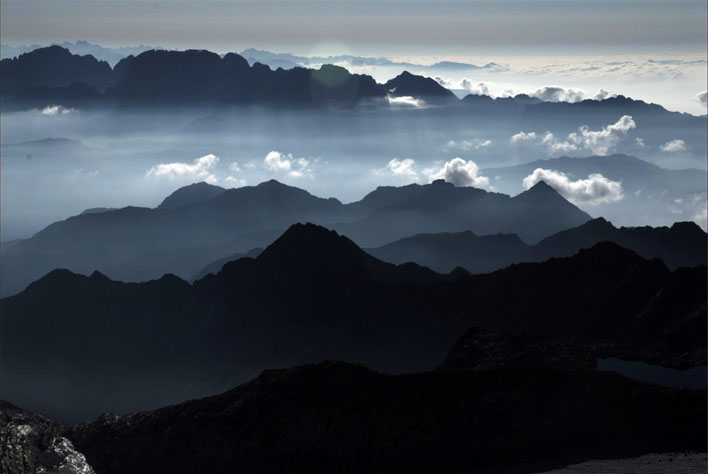Il limite e l’altrove: il mito di Jean-Paul Belmondo nella Siberia di Andreï Makine
Abstract
The narrative work of Andreï Makine (1957), a French writer of Siberian origin, is situated on the border between two geographical and cultural spaces: on the one hand the wide, wild and snowy Siberia of his childhood; on the other hand France, a mythic place which the main characters, often teenagers, of his novels look at as a model. The contrast between these two worlds is described in a particularly forceful way in one of his early novels, Au temps du fleuve Amour (1994), in which the author tells the overwhelming effect of the screening of a popular French comedy with Jean-Paul Belmondo (Le Magnifique, 1973) in a small Siberian village. Looking closely at the entire sequence which is devoted to the film in the novel, the paper aims to reconstruct the process of mythicizing the Belmondo character by the three young protagonists and to investigate the functions that the episode covers in the novel. Focusing on the different narrative levels that characterize the film plot, we show how the “phenomenon Belmondo” embodies in the novel the idea of a triple border: a geographic one (Europe/Asia), an expressive one (writing/imagine) and, above all, an imaginary one (reality/fiction). We also show how this phenomenon refers, in the novel, to one of the central themes of Makine’s work: literary vocation.
Downloads
Riferimenti bibliografici
Bibliografia
Barthes, Roland, Mythologies, Paris, Éditions du Seuil, 1957.
Barthes, Roland, La chambre claire. Note sur la photographie, Paris, Gallimard Seuil, 1980.
Caratozzolo, Marco, “Il prostor e l’identité nell’opera di Andreï Maki-ne”, Dintorni. Rivista di letterature e culture dell’Università degli studi di Bergamo, 1 (2006): 137-145.
Caratozzolo, Marco, “Andreï Makine: langue russa, parole francese”, Letteratura e let-terature, 4 (2010): 111-124.
Clément, Murielle Lucie, Andreï Makine. Présence de l'absence: une poétique de l'art (photographie, cinéma, musique), Amsterdam, Emelci, 2007.
Clément, Murielle Lucie, Andreï Makine. Le Multilinguisme, la photographie, le cinéma et la musique dans son œuvre, Paris, L'Harmattan, 2010.
Epstein, Mikhail N., “Russo-Soviet Topoi”, The Landscape of Stalinism. The Art and Ideology of Soviet Space, Eds.
Evgeny Dobrenko – Eric Naiman, University of Washington Press, 2003: 277-306.
Makine, Andreï, La fille d’un héros de l’Union soviétique, Paris, Ro-bert Laffond, 1990.
Makine, Andreï, Confession d’un porte-drapeau déchu, Paris, Belfond, 1992, trad. it. di Maria Elisa Della Casa, Le confessioni di un alfiere decaduto, Firenze, Passigli, 1998.
Makine, Andreï, Au temps du fleuve Amour (1994, Édition du Félin), Gallimard, Folio, Paris 1996, trad. it. di Maurizio Ferrara, Al tempo del fiume Amur, Firenze, Passigli, 2001.
Makine, Andreï, Le testament français, Paris, Mercure de France, 1995, trad. it. di Laura Frausin Guarino, Il testamento francese, Milano, Mondadori, 1996 (seconda edizione Torino, Einaudi, 2008).
Makine, Andreï, Le crime de Olga Alrbélina, Paris, Mercure de France, 1998, trad. it. di Anna Zanetti, Il delitto di Olga Arbélina, Firenze, Passigli, 2000.
Makine, Andreï, Requiem pour l’Est, Paris, Mercure de France, 2000.
Makine, Andreï, La musique d’une vie, Paris, Éditions du Seuil, 2001, trad. it. di Annamaria Ferrero, La musica di una vita, Torino, Einaudi, 2003.
Makine, Andreï, La terre et le ciel de Jacques Dorme, Paris, Mercure de France, 2003, trad. it. di Maurizio Ferrara, La terra e il cielo di Jacques Dorme, Firenze, Passigli, 2008.
Makine, Andreï, La femme qui attendait, Paris, Éditions du Seuil, 2004, trad. it. di Annamaria Ferrero, La donna che aspettava, Torino, Einaudi, 2006.
Makine, Andreï, L’amour humain, Paris, Éditions du Seuil, 2006, trad. it. di Yasmina Mélaouah, L’amore umano, Torino, Einaudi, 2008.
Makine, Andreï, Le monde selon Gabriel, Paris, Éditions du Rocher, 2007.
Makine, Andreï, La vie d’un homme inconnu, Paris, Éditions du Seuil, 2009.
Makine, Andreï, Le livre des brèves amours éternelles, Paris, Éditions du Seuil, 2011.
Parry, Margaret – Scheidhauer, Marie Louise (eds.), Andreï Makine: la Rencontre de l’Est et de l’Ouest, Paris, L’Harmattan, 2004.
Parry, Margaret – Scheidhauer, Marie Louise – Welch, Edward (eds.), Andreï Makine, Perspectives Russes, Paris, L’Harmattan, 2005.
Parry, Margaret – Scheidhauer, Marie Louise (eds.), Andreï Makine, Le Sentiment poétique, Paris, L'Harmattan, 2008.
Piretto, Giampiero, Il radioso avvenire. Mitologie culturali sovietiche, Torino, Einaudi, 2001.
Vincendeau, Ginette, Stars and Stardom in French Cinema, London, Continuum, 2000.
Zinov’ev, Aleksandr, Homo sovieticus, Jaca Book, 1983.
Sitografia
Andreï Makine, web.
Filmografia
Le magnifique. Comment détruire la réputation du plus célèbre agent secret du monde, Dir. Philippe de Broca, France, 1973.
Informazioni sul copyright
Questa licenza permette a terzi di riprodurre, distribuire, comunicare al pubblico, esporre in pubblico, rappresentare, eseguire, recitare e modificare quest'opera, purché vengano citati l'autore e la rivista. Questa è la più ampia tra le licenze Creative Commons, rispetto alle libertà concesse a terzi sulle opere licenziate sotto Attribuzione.









